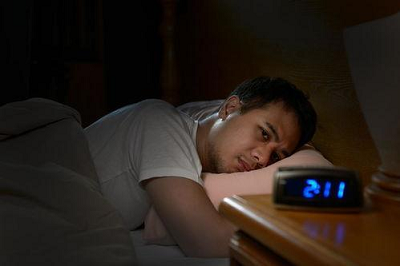Relieve Prostatitis: Don't Let the Disease Keep You Up at Night
The prostate is a soft and elastic gland containing rich blood vessels, nerves, glandular ducts, and fluid.

Nerves can sense and transmit sexual stimulation, control the contraction and relaxation of envelopes and blood vessels, and regulate the secretion of glandular fluid. Blood vessels supply oxygen and nutrients to tissues and carry away waste to maintain normal metabolism. At the same time, the contraction and expansion of blood vessels can regulate the erection of the penis. The prostate controls the urination and ejaculation of men, and it is the valve for male urination and ejaculation.
Prostatitis may lead to frequent urination during the night. Bacteria or non-bacterial pathogens stimulate the urethra, prostate, bladder, and other parts, causing related muscle community dysfunction and excessive spasms, thus leading to frequent urination at night. If there is an inflammation of the reproductive tract, the stimulation may be more sensitive, resulting in increased urine.
It is believed in TCM that "kidneys govern water, and it is responsible for the opening and closing." Kidneys govern the production and discharging of urine, and the production of urine depends on the transpiration, vaporization, and re-absorption of water by kidneys.
Kidneys, which are similar to the distillers, can re-absorb the water. Water can only be vaporized and sent to various organs when the "distillers" are heated. However, the heat sources of the distillers are the kidney yang and vital essences in the kidneys. When kidney yang is deficient, and the essences lose, it will affect the vaporization and re-absorption of water, resulting in water retention, thus resulting in more urine.
Frequent urination at night will seriously affect patients' sleep quality. Moreover, inflammatory stimulation can cause significant pain. It is terrible for the patient's health. Therefore, patients with prostatitis should be treated promptly to alleviate related symptoms.
The prostatitis treatments generally include the following:
1. Infusion therapy: if there is acute prostatitis, infusion therapy is generally required.
2. Antibiotic treatments: Antibiotic infections should be prescribed in case of bacterial infections.
However, antibiotics are harmful to the improvement of sclerotic lesions. In the early stage of taking antibiotics, many antibiotics enter the body and have an inhibitory effect on the superficial inflammation caused by sclerotic lesions.
However, superficial inflammation is an aseptic inflammation caused by forming glandular lesions to stimulate the human body. Antibiotics have undifferentiated fertilization functions. When no bacteria can be killed, antibiotics will kill the beneficial bacteria, thus resulting in confusion in the human flora and adding difficulty to subsequent treatments.
3. Symptomatic treatments: if there are no clear bacterial infections, it is generally necessary to carry out therapies targeting the symptoms, such as urination symptoms, etc. Drugs commonly taken include relaxants for the urethra, pain relievers, and herbal medicines.
Herbal medicines are recommended for treating sclerotic prostate lesions. Although it will take a lot of time for herbal medicines to become effective, they can fundamentally solve the problems of prostatitis and relieve the symptoms. For example, herbal medicine Diuretic and Anti-inflammatory Pill can fundamentally kill various bacteria that cause prostatitis.
In addition, it can help patients regulate the body and gradually help them recover health by promoting blood circulation and Qi, relieving pain, resisting inflammation, eliminating swelling, and inducing urination.
4. Assisted therapies: Assisted therapies are usually adopted if medication provides non-ideal effects or significant drug adverse effects. The details are as follows:
Drinking plenty of water: Drinking water helps the body metabolize and eliminate toxins. That is especially true for prostate patients. During urination frequent urination will help wash away bacteria attached to the urethra. Drinking more water will facilitate urination, which will help restore inflammation. At the same time, patients should maintain a regular sex life, as regular sex helps to discharge prostate fluid, thus promoting inflammation recovery.
Avoid being sedentary: Most people work in the office and don't need to go outside. However, being sedentary can put pressure on the prostate and cause bacterial infections. Therefore, people should often stand up and move the tibia, which can alleviate the harm of sitting on the prostate.
Anus-lifting exercises: Anus-lifting exercises improve blood flow around the anus and help to improve prostate congestion caused by sitting. Anus-lifting exercises can also act as a massage for the prostate. This method should be done every day to alleviate inflammation.
Hot water sitz baths: they can effectively relieve the edema and pain of prostatitis patients and help clean the prostate, thus avoiding the breeding of bacteria. However, patients should control the water temperature. Water temperatures should not be too high or too low. Patients should keep a normal water temperature, with a duration of about 15 minutes at a time.
Psychological treatments: Many people often feel anxious because of the cycle and complexity of prostate treatments because some symptoms can affect their normal life. However, those emotions will affect the recovery of prostatitis. Patients should maintain relaxed and face prostatitis treatments with a positive attitude.
You may also be interested in:
How Effective are Kegel Exercises in Managing Split Urine Stream Caused by Prostatitis?
Unlocking the Potential of Probiotics: A Promising Treatment for Prostatitis?



